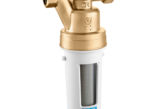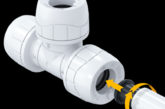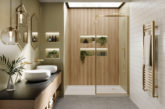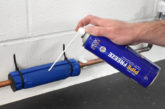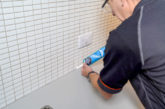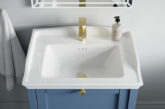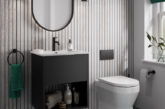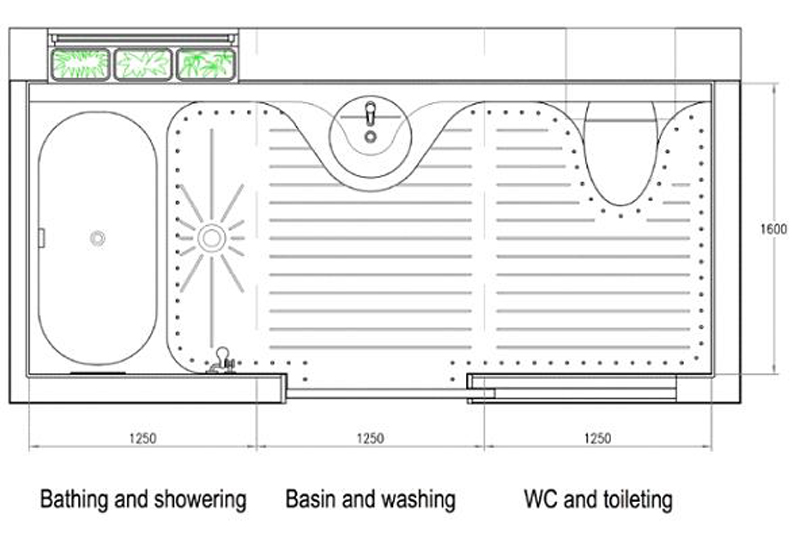
Following a nationwide competition to find the bathroom of the future, Ideal Standard is excited to announce the three lucky architect and design professionals who are celebrating after their ideas on how bathrooms will look, feel and perform in the future were chosen by the judging panel.
Jennifer Cairns from Lyall & Winter was the overall winner (featured image), and walks away with the £5,000 cash prize. Her winning design identified key issues in planning future bathrooms, including space, accessibility, affordability and sustainability. The modularity of her designs allow for a number of layout options to suit the needs of different users within the bathroom by combining showering, basin washing and toileting in a self-contained modular pod.
Tony Rheinberg, Head of Commercial Marketing for Ideal Standard who was on the judging panel commented: “We had a huge number of submissions, but Jennifer’s design was the clearest entry and extremely resourceful, it identified and addressed key issues in planning bathrooms of the future and overall was a very well presented entry.”
Commenting on her win, Jennifer said: “I am delighted our entry has been so successful. The principles of accessibility, sustainability, adaptability of layout and the modular potential are important aspects of the design strategy. The health benefits for users are also significant factors. This Future Bathroom design is intended for mass-production and our practice is very interested in developing the design into production using new manufacturing technologies including 3D printing and robotics.”
Second prize went to Onur Ozkaya, from London, who based her design on Sento, a traditional type of bath house found in Japan, which combines the functionality of bathing to clean with relaxation and the environment. The concept pushed the boundaries of conventional bathing, embracing the social as well as practical aspects of bathing.

Third prize went to Nick O’Neill, from Edinburgh, whose concept revolved around a sunken bath to provide a fun bathing area that is more easily accessible for an aging population. The design offered an adaptable solution for long term accessibility with an automated motorised shower platform which included built in grab rails that could be lowered to provide a level shower area.
Commenting on the entries received, Tony said: “We had a number of very inspirational designs submitted which really addressed the trends, lifestyle, issues, sustainability and demographics of the future.
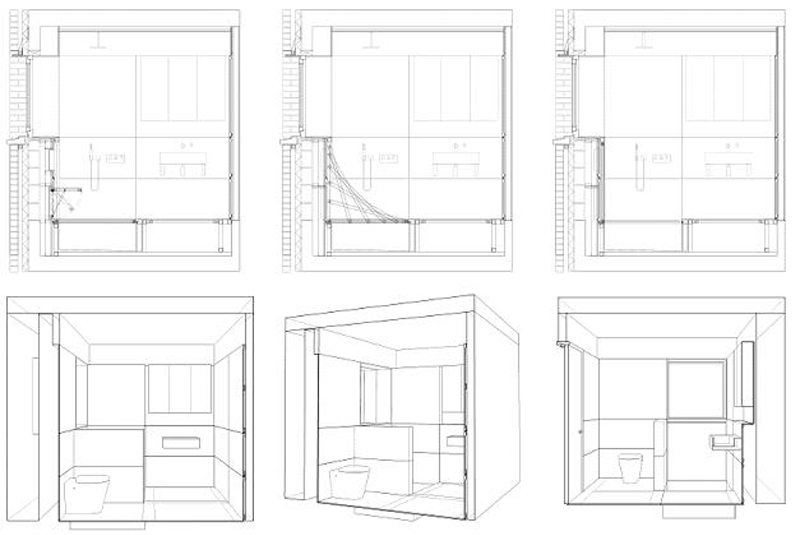
“We always like to be at the forefront of bathroom innovation, and it’s clear there’s no shortage of designers out there who have a grasp of the future generation and how bathrooms might look on a practical, realistic and functional level. Watch this space for the bathroom of the future designs becoming a reality.”
The UK bathroom manufacturer has often been at the forefront of innovation including addressing the limited space available in domestic bathrooms, designing products that help save water and using well known designers to produce functional, practical bathrooms with strong aesthetic appeal. The competition was a chance to showcase what future residential bathrooms may look like in 20 years’ time.
For more information, visit: www.ideal-standard.co.uk


